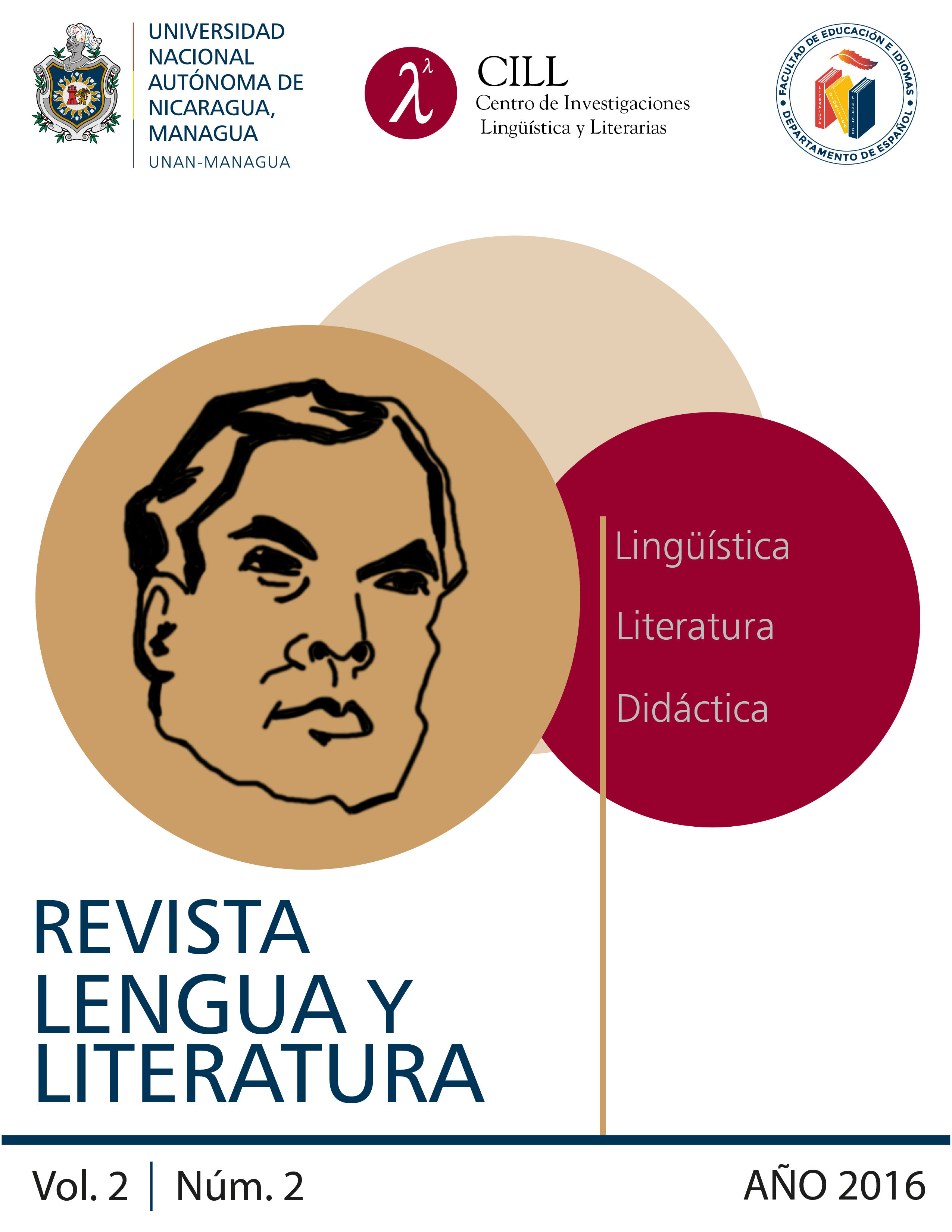The mythification of Latin America
a reading of the narrative of Sergio Ramirez
DOI:
https://doi.org/10.5377.rll.v2i2.9361Abstract
The myth in the Greek civilization made reference to a story without truth, but that it satisfied man to the extent that facilitated the understanding of an indecipherable fact. In this sense, the word was used with the purpose of discrediting an explanation unverifiable. (Said, 1998, p. 9) Thus, religious ceremonies and established ideological principles were taken as irrational actions due to support on an unlikely basis. In this way, the myth consisted of a story full of events and that, in ancient Greece revolved around to the narration of a heroic deed that rushed a divinized character, who told with the approval of the powerful gods, creators of the worlds and underworlds in the which was due to them the functioning of life.
Downloads
References
Barthes, Roland. (1980) “Mitologías”, primera edición en español. Siglo Ventiuno editores S.a. España
Eco, Umberto. (1968). “Apocalípticos e integrados” 1ª edición: Ed. Valentino Bompiani. España.
Eliade, Mircea. (1994). “Mito y Realidad”. Ed. Labor S.A
Lozano, J, Peña, C y Abril, G. (1982). “Análisis del discurso. Hacia una semiótica de la interacción textual”. Madrid. Cátedra.
Muecke, D.(1986). “Irony and the ironic” Londres. Methuen.
Rodríguez G. (1985). “Sobre la historia del tropo poético”. Ed. Letras cubanas. La Habana.
Said, Suzanne (1998) “Introducción a la mitología griega” Ed. Acento España. 47
Downloads
Published
How to Cite
Issue
Section
License
Copyright (c) 2022 Universidad Nacional Autónoma de Nicaragua, Managua

This work is licensed under a Creative Commons Attribution-NonCommercial-ShareAlike 4.0 International License.






